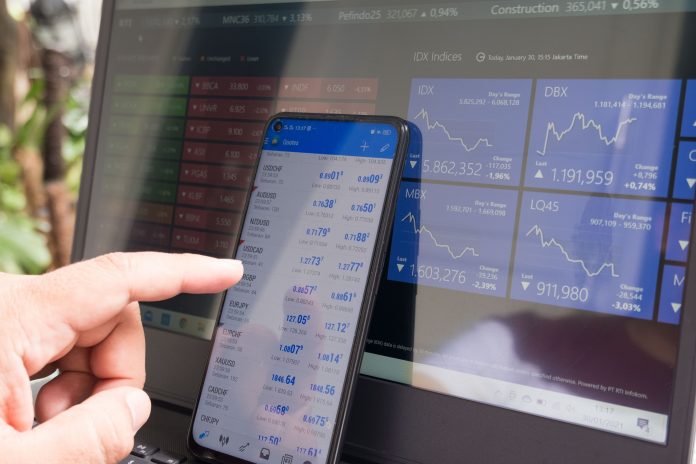There are many things to consider if you want to start a Forex broker. How will you attract clients? What regulatory licenses do you need? And how much capital should you have on hand to cover potential losses? This blog post will walk you through everything you need to know to get your business off the ground. So whether you’re just getting started or you’re already in the planning stages, read on for our tips!
What is Forex trading, and how does it work?
The practice of forex trading consists of simultaneously buying and selling currencies. Currencies are traded in pairs, and the value of a currency pair is determined by the relative value of the two currencies involved. For example, if you buy EUR/USD, you are buying Euros and selling U.S. dollars.
Unlike other financial markets, there is no central exchange for Forex trading. Instead, currencies are traded freely between different market participants around the world.
The foreign exchange market is the largest and most liquid market in the world. This means that there are always plenty of opportunities for traders to make a profit. However, it also means that significant risk is involved, as currency values can fluctuate rapidly and unexpectedly.
Why start a Forex broker?
There are several reasons why you might want to start a Forex broker. Firstly, the Forex market is enormous and growing all the time. The foreign exchange market is the largest financial market in the world, with a daily turnover of over $5 trillion. That’s more than three times the size of the aggregate daily volume of all U.S. equities markets combined! Forex is also one of the most liquid markets in the world, meaning that there is always a buyer and seller for any given currency pair. This liquidity makes it easy to get in and out of trades and provides opportunities for traders to take advantage of small price movements. In addition, the Forex market is open around the clock, giving traders the flexibility to trade when it suits them. All these factors make Forex an attractive market for retail and institutional traders.
Secondly, Forex trading is becoming increasingly popular as people look for new ways to make money. This popularity will only likely increase in the future, so now is a great time to start. With the current state of the economy, many people are uncertain about their future financial stability. Investing in Forex provides an opportunity to make money without relying on traditional methods, such as working for a salary.
Thirdly, starting a Forex broker can be a very lucrative business. You can make money if you can attract enough clients and trade successfully.
There are two main ways that Forex brokers make money: through commissions and spreads. Commissions are charged on each trade a client makes, while spreads are the difference between the bid and ask prices of a currency pair. If a broker offers low commissions or tight spreads, they can attract more clients, leading to more profits.
For example, if a broker charges a commission of $5 per trade and a client makes ten trades per week, the broker will earn $50 in commissions from that client. However, if the broker charges a spread of 2 pips (i.e., the difference between the bid and ask price is two pips) on each trade, and the client makes the same ten trades per week, the broker will earn $20 in spreads. Thus, brokers need to offer competitive rates to attract and retain clients.
Of course, starting any business comes with risks and challenges. But if you are prepared to work hard and take some risks, starting a Forex broker can be a very rewarding experience. With the right preparation and planning, you can build a successful business that can provide you with a good income and lifestyle.
Starting a Forex Brokerage
The Business Plan
If you are planning to start a Forex brokerage firm, it is essential to put together a comprehensive business plan. This document will outline your business goals, strategies, and potential sources of revenue. It will also help you attract investors and partners and secure the necessary funding to get your business off the ground.
Your business plan should include the following:
- An executive summary: This is a brief overview of your business, including your goals and how you intend to achieve them.
- A description of your business: What services will you offer? How will you differentiate yourself from other Forex brokers?
- A marketing plan: How will you reach your target clients? What marketing channels will you use?
- A financial plan: What are your projected costs and revenue streams? How much money do you need to get started?
- An operational plan: What are the day-to-day operations of your business? Who will be responsible for what tasks?
- A risk management plan: What risks are you facing, and how will you mitigate them?
- A compliance plan: What regulations do you need to comply with? How will your business comply with all relevant laws and regulations?
The executive summary is the most important part of your business plan, as it will be the first thing investors and partners read. Therefore, it is important to ensure that this section is clear, concise, and persuasive.
The rest of your business plan should provide more detailed information on each topic covered in the executive summary. Make sure to include realistic assumptions and projections based on market research and analysis.
Your business plan should be reviewed and updated regularly as your business grows and changes. It is also essential to have a risk management plan in place in case of unexpected events, such as economic recession or political instability.
Licensing and Registration
To operate a Forex brokerage, you must obtain the necessary licenses and registrations. The requirements vary from country to country, but you will need to register your business as a financial services provider. You will also need to obtain a license from the financial regulator in your jurisdiction.
In the United States, for example, you will need to register with the National Futures Association (NFA) and obtain a Series 3 license. In the United Kingdom, you will need to be authorized by the Financial Conduct Authority (FCA). And in Australia, you will need to obtain an Australian financial services license (AFSL).
It is important to consult with a lawyer or compliance officer to ensure that you comply with all the relevant laws and regulations. Failure to do so could result in heavy fines or even jail time.
Opening a Bank Account
You will also need to open a bank account for your Forex brokerage. This account will be used to hold client funds and process transactions. Choosing a bank regulated by a reputable financial authority, such as the U.S. Federal Reserve or the U.K. Financial Conduct Authority, is important.
You will also need to ensure that your account has adequate safeguards in place to protect client funds. For example, you should consider opening a segregated account, which is an account that is separate from the company’s operating account. This will help to protect client funds in the event that your company goes bankrupt.
Choosing a bank with good customer service and a robust online platform is also essential. This will make it easier for you to process transactions and manage your account.
Finding Forex Liquidity Providers
To trade Forex, you will need to find a liquidity provider. A liquidity provider is a financial institution that provides the capital for trades.
There are many Forex liquidity providers exist, including banks, hedge funds, and other financial institutions. It is crucial to choose a reputable provider with a good track record.
You will also need to consider the costs associated with each provider. Some providers charge commissions, while others may charge fees based on the size of the trade.
Also, consider the reliability of each provider. You should ensure that the provider has a good reputation and can execute trades quickly and efficiently.
Providing a Trading Platform
To trade Forex, you will need to build a trading platform. A trading platform is a software application that allows your clients to place and manage their trades. There are many different types of trading platforms, including web-based platforms, desktop platforms, and mobile platforms.
Choose a user-friendly platform with all the features you want to offer your customers. Also, you will need to consider the costs associated with each platform. Some platforms charge monthly fees, while others may charge per-trade fees.
Launching Your Brokerage
After everything is in place, you are ready to launch your brokerage. You will need to promote your business and attract customers. There are many ways to do this, including online marketing, print advertising, and word-of-mouth. Choose the method that is most effective for your target market.
As you can see, a lot is involved in starting a Forex brokerage. It goes without saying that a significant starting capital is required.
Now that you know what is involved in starting a Forex brokerage, you may wonder if there is an easier way to start a brokerage. There is!
Forex White Label Solutions
A Forex white label solution is a turnkey solution that allows you to start a Forex brokerage with minimal effort and cost. With a white label solution, you will receive everything you need to start your brokerage, including a trading platform, liquidity providers, customer support, and marketing materials.
White label solutions are ideal for those who want to start a brokerage but do not have the time or resources to do so. They are also a good option for those who want to enter the Forex market but do not have the experience or knowledge to do so.
If you are interested in starting a Forex brokerage, we recommend you consider a white label solution.
Conclusion
Starting a Forex brokerage is a complex and costly process. However, it can be a very rewarding business venture. If you have the time and resources to do so, we recommend that you consider starting a brokerage. If you do not have the time or resources to do so, we recommend you consider a white label solution. Either way, you can be sure that you will need to put in a lot of hard work to make your brokerage a success.
There are many interesting and amazing details about animals Birds that you may not have known. For example, Flowers That Look Like Birds Whether you’re interested in animals as pets, food sources, or natural history, you’ll find the information you need on About Animals.










